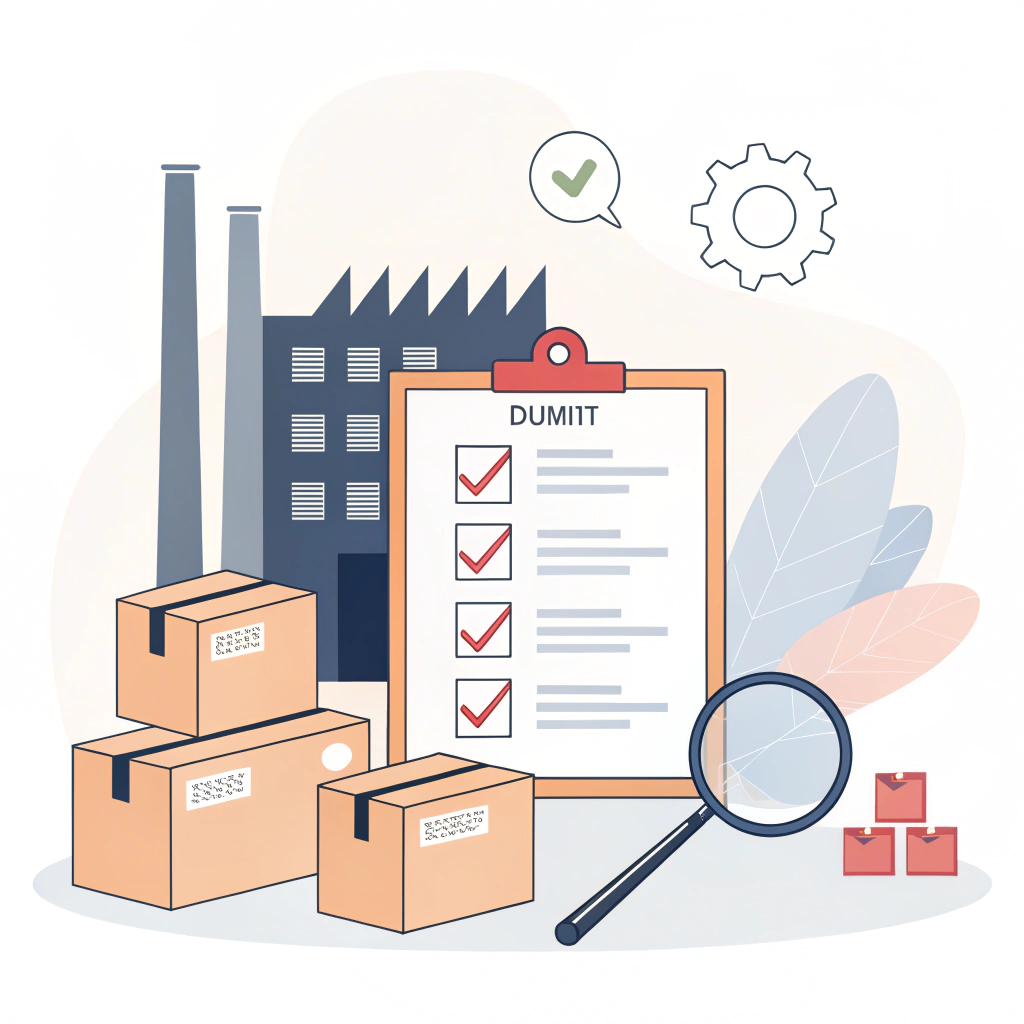Quick Answer: To mitigate risks when sourcing Padel Rackets1 online, procurement managers must identify key red flags—such as unrealistic pricing, insufficient quality control, and lacking production certifications—by using a thorough supplier verification process, leveraging detailed production audits, sample testing, and clear communication on delivery timelines.
In today’s competitive market, reliable online sourcing is essential for businesses involved in sports equipment distribution. However, risks related to quality control, production capability, and supplier credibility often emerge. This guide outlines common warning signs, explains their underlying causes, and offers practical solutions for procurement managers who need to ensure that every order meets rigorous industry benchmarks.
Procurement managers and sourcing specialists face several challenges when engaging with online suppliers, particularly for high-performance products like Padel Rackets. Discrepancies in supplier information, vague references to materials (e.g., 3k, 12k, and 18k carbon fiber2), and inconsistencies in turnaround times can lead to significant procurement risks.
Key challenges include:
• Inconsistent Quality Control: Suppliers may provide low-quality samples that do not accurately represent full production runs.
• Unverified Certifications: Lack of documented production standards and industry certifications can obscure true production capabilities.
• Unrealistic Pricing: While lower prices can be attractive, they may signal hidden manufacturing shortcuts or subpar materials.
• Inadequate Communication: Delays and dependency on indirect communication channels can make it difficult to resolve issues promptly.
These challenges highlight the need for a clear, systematic approach to supplier evaluation and risk management.
Understanding why certain red flags appear can help in making informed sourcing decisions. The major underlying causes include:
-
Quality Control Gaps:
Suppliers may cut corners in manufacturing to reduce costs, which in turn can lead to inconsistent product durability and performance. Missing robust quality control measures or using inferior raw materials (from glass fiber components to varying grades of carbon fiber) are key indicators of potential problems. -
Inadequate Certification and Compliance:
Many suppliers may not have the necessary industry certifications or may provide outdated compliance information. This could indicate that their production processes do not adhere to modern standards or that they are merely replicating practices rather than innovating securely. -
Production and Delivery Uncertainties:
Suppliers with rapid but unverified quick-turn orders may face delays, interruptions, or quality fluctuations. When production timelines and delivery commitments are not clearly defined or consistently met, the risks multiply. -
Low Transparency in Customization Options:
With the rising trend in full-customization orders—especially for padel rackets that offer custom printing, varying shapes (Diamond, Round, Teardrop), and accessory options like hand grip customizations—a lack of detailed customization process explanation might signal low operational maturity.
To mitigate risks, procurement managers should adopt a structured method when evaluating potential suppliers. The following table outlines common red flags alongside recommended measures:
| Red Flag | Potential Issue | Recommended Action |
|---|---|---|
| Unrealistic Pricing | May signal cost-cutting in material or production process | Request detailed cost breakdown and compare with industry norms. |
| Insufficient Quality Certifications | Lack of verified production certification3 and quality controls | Ask for recent audit reports and third-party quality certifications. |
| Poor Communication | Delays in responses can indicate broader management issues | Evaluate supplier responsiveness during pre-contract negotiations. |
| Vague Customization Capabilities | Unclear production processes undermine the promise of full customization | Request samples of previous custom orders and detailed process flow. |
| Unverified Material Claims | Claims on advanced materials (e.g., 18k carbon fiber) might be misleading | Ask for technical data sheets and material certifications. |
| Ambiguous Delivery Timelines | Uncertain delivery dates can disrupt your supply chain | Establish clear delivery timeframes and penalty clauses in contracts. |
This structured approach not only clarifies vendor capabilities but also builds a negotiation framework that supports long-term, risk-averse procurement.
Given the fast pace of online procurement, adhering to best practices is crucial. Consider the following methodologies to ensure robust supplier due diligence:
Perform comprehensive audits by either sending in-house experts or using third-party inspection firms. Make sure to verify the factory’s manufacturing standards4. Audits should cover:
- Facility condition and organization
- Equipment and production capabilities
- Quality control and testing procedures
Before entering into a large-scale contract, request batch samples of both padel rackets and associated custom accessories (such as hand grips and racket covers). Testing these samples will confirm material quality and manufacturing consistency.
A reliable supplier should readily provide up-to-date compliance certificates, audit reports, and performance test data. Check if they adhere to internationally recognized standards for sports equipment manufacturing.
Assess supplier responsiveness as part of your overall evaluation. Track response times to queries and the clarity of their communication regarding production timelines and customization capabilities.
Consider establishing initial, smaller trial orders to test the full production cycle. This not only verifies the supplier’s efficiency but also minimizes risk if issues arise during production.
A well-known sports equipment distributor recently faced challenges with an online-sourced supplier who offered attractive prices for Padel Rackets. Initially, the distributor was enticed by the competitive pricing and quick turnaround promises. However, upon receiving the final products, significant discrepancies were observed in material quality and customization details.
The distributor quickly implemented a series of verification steps:
• They scheduled an on-site production audit and uncovered several areas where quality control was neglected.
• Detailed cost analyses revealed that significant expenses were being cut, resulting in subpar materials and production processes.
• After updating their supplier verification checklist and negotiating stricter contract terms, the distributor switched to a more reliable partner, ensuring consistent quality and timely deliveries.
This case underscores that proactive risk management—encompassing audits, sample reviews, and firm communication—can significantly enhance supplier reliability. It also illustrates the financial and reputational risks that can arise from bypassing rigorous verification when sourcing components vital to end-product performance.
Procurement managers need to adhere to a disciplined supplier verification process when sourcing Padel Rackets online. Here are the key takeaways:
• Always scrutinize price points, as too-good-to-be-true pricing often correlates with quality compromises.
• Demand comprehensive quality certifications and conduct factory audits to ensure manufacturing standards are met.
• Insist on transparent communication regarding production timelines and customization options.
• Initiate trial orders to test a supplier’s production capabilities before committing to large-scale orders.
• Finally, build supplier relationships on clearly documented terms regarding quality control, delivery schedules, and customized production requirements.
By following these action points, procurement managers can avoid common pitfalls and ensure that the suppliers chosen not only deliver on quality but also uphold the rigorous standards required in the sports equipment industry.
Effective risk management in online sourcing for Padel Rackets involves a blend of thorough supplier verification, clear communication channels, and robust contractual safeguards. By adhering to the practices outlined in this guide, procurement managers can confidently identify and address early red flags. This proactive approach not only secures product quality and consistency but also builds a foundation for long-term supplier relationships and sustained operational success.
Moving forward, integrate these guidelines into your procurement process to mitigate risk and ensure every partnership is built on a foundation of reliability and mutual trust.
People Also Ask
Q: What are the common red flags to watch for when sourcing padel rackets online?
A: Common red flags include unrealistic pricing, inconsistent quality control practices, lack of verified production certifications, vague customization processes, and ambiguous delivery timelines.
Q: How can I verify the production capabilities of an online padel racket supplier?
A: Verification can be achieved through detailed production audits, requesting and testing samples, reviewing updated compliance and certification documents, and monitoring supplier responsiveness during initial communications.
Q: What steps should be taken if a supplier's quality control measures seem inadequate?
A: If quality control appears lacking, inquire for detailed inspection reports, ask for updated certifications, perform an on-site audit or third-party inspection, and consider initiating a trial order before committing to larger volumes.
-
Padel Rackets: Click to read more about the specifics of padel racket design, materials, and performance criteria essential for B2B procurement in sports equipment. Back to text ↩
-
carbon fiber: Click to explore detailed information on carbon fiber materials, including grades and their impact on product performance and durability, which is crucial for sourcing high-quality sports equipment. Back to text ↩
-
production certification: Click to understand the significance of production certifications, the various standards available, and how they serve as a benchmark for manufacturing reliability and quality in the sports equipment industry. Back to text ↩
-
manufacturing standards: Click to learn about manufacturing standards, their role in quality assurance, and the best practices for ensuring suppliers meet international benchmarks essential for consistent production quality. Back to text ↩







